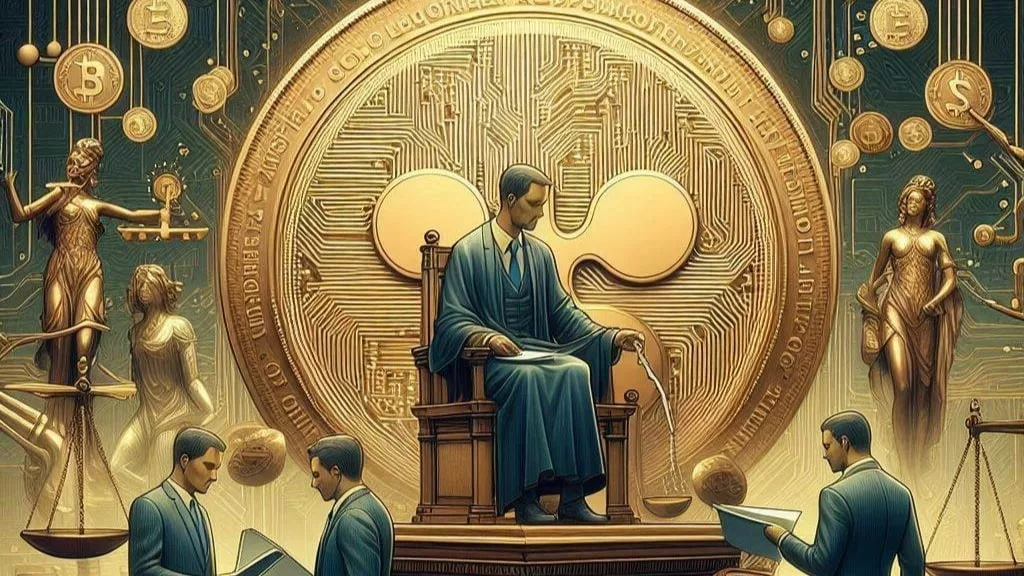
Ripple finds itself at the center of a legal storm, contending with the US Securities and Exchange Commission (SEC) over allegations related to historical contracts and XRP transactions. As this legal saga unfolds, Ripple’s defense strategy takes center stage, presenting a fascinating case study in the intersection of law, finance, and technology.
At the heart of Ripple’s legal battle with the SEC lies a fundamental disagreement over the classification of XRP. While Ripple asserts that XRP is not a security, the SEC contends otherwise, alleging that Ripple violated securities laws by conducting unregistered of XRP and failing to disclose material information to investors.
The latest development in this protracted legal dispute revolves around Ripple’s response to the SEC’s claims regarding historical contracts and the confidentiality of financial information. Ripple’s defense, spearheaded by legal counsel from Debevoise & Plimpton LLP, challenges the SEC’s arguments on multiple fronts, aiming to debunk the regulatory body’s assertions and safeguard Ripple’s interests.
Andrew J. Ceresney’s letter to Judge Analisa Torres of the Southern District of New York serves as a cornerstone of Ripple’s defense, outlining key rebuttals to the SEC’s allegations. Central to Ripple’s argument is the assertion that its current financial condition should not influence the court’s assessment of past penalties. Ripple contends that disclosing private financial information, particularly information unrelated to the alleged infractions, would set a dangerous precedent and compromise the company’s competitive position.
Moreover, Ripple challenges the SEC’s characterization of historical contracts as obsolete, emphasizing the importance of preserving the confidentiality of these agreements. CFO Jonathan Billich underscores the potential implications for future business negotiations if sensitive contract terms were to be disclosed, highlighting the need for legal protection and privacy safeguards.
In response to the SEC’s demand for public disclosure of XRP prices under securities legislation, Ripple maintains that XRP is not a security and, therefore, should not be subject to the same transparency requirements as registered securities. By refuting the SEC’s claims and highlighting inconsistencies in the regulatory framework, Ripple seeks to bolster its position and secure a favorable outcome in the legal proceedings.
Beyond the confines of the courtroom, Ripple’s legal battle carries significant implications for the broader cryptocurrency market. Investors, industry stakeholders, and regulatory authorities alike are closely monitoring the proceedings, recognizing the potential ripple effects of the final verdict.
Amidst the legal turmoil, market dynamics continue to fluctuate, with XRP prices reflecting investor sentiment and regulatory uncertainty. As Ripple navigates the legal terrain, market observers analyze price movements and assess the implications for the cryptocurrency ecosystem.
As Ripple’s legal odyssey unfolds, it underscores the challenges and complexities inherent in regulating emerging technologies. The outcome of this high-stakes legal battle will not only shape Ripple’s future but also influence the trajectory of cryptocurrency regulation worldwide.
In the midst of legal wrangling and regulatory scrutiny, Ripple remains steadfast in its commitment to innovation and transparency. As stakeholders await Judge Torres’s decision, the cryptocurrency community braces for a landmark ruling that could reshape the regulatory landscape for years to come.
In this ever-evolving saga of law and technology, Ripple’s journey serves as a poignant reminder of the transformative power of blockchain technology and the ongoing quest for regulatory clarity in the digital age. As the legal proceedings unfold, one thing remains certain: the ripple effects of this case will be felt far beyond the confines of the courtroom, shaping the future of finance and technology in profound ways.



Get the latest Crypto & Blockchain News in your inbox.